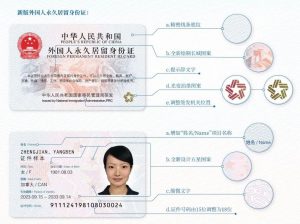8 Essential Tips for Smooth Work Visa Conversion in China’s Job Season

1. Early Planning for Smooth Visa Transition
For a seamless work visa conversion, expatriates should start planning early. The process is detailed and requires understanding the nuances of changing job titles, business scope differences, and potential relocation. Managing time effectively is crucial, particularly with the 30-day limit post-current work visa cancellation for arranging subsequent steps.

2. Document Updates and Passport Validity
Updating your documentation is a vital step in preparing for your work visa conversion. This may include new academic achievements or additional work experiences. Moreover, ensure your passport’s validity aligns with your visa application needs and update it accordingly to avoid complications.

3. Navigating Employer Qualification Changes
Before you resign and initiate your work visa conversion, ensure your new employer is duly registered and meets all the necessary qualifications. Changes in your new employer’s business status or personnel should be addressed promptly to avoid delays in your work visa conversion.

4. Adapting to City-Specific Visa Policies
Understanding the visa policies of both your current and future city is essential for a smooth work visa conversion. Policies may vary, affecting how your work-type residence permit is handled. Stay informed to navigate these differences effectively.

5. Justifying Job Changes with Documentation
When changing job positions or employers with different business scopes, it’s crucial to justify your move with relevant documentation. This may include certifications of relevant work experience or professional qualifications.

6. Ensuring Document Continuity for Visa Reapplication
The cancellation of your previous work permit is a delicate process. Ensure all documents, including your resignation certificate and work permit cancellation form, are in order and submitted timely to facilitate a smooth reapplication for your new work visa.

7. Handling Non-Cooperative Employers: Steps to Take
Should you encounter difficulties with a non-cooperative former employer, know the steps to take, including filing complaints or seeking arbitration, to ensure your work visa conversion is not jeopardized.

8. Post-Visa Change Considerations and Strategic Planning
After successfully converting your work visa, consider the broader implications, such as how a city change might affect your permanent residency application or how salary changes could influence your eligibility. Planning for these eventualities is key.

Navigating the work visa conversion process during China’s “Golden March and Silver April” job season requires preparation, understanding, and strategic planning. By adhering to these 8 tips, expatriates can confidently manage their transition, ensuring they are well-positioned to seize new career opportunities in China.

Follow our Official WeChat to get the latest policy of China Visa.


